Trunk is a lightweight inventory syncing tool built for ecommerce sellers. It connects platforms such as Shopify, Etsy, Amazon, and maintains consistent stock levels across them.
One of its key features is real-time inventory sync, ensuring that when an item sells on one platform, it’s instantly updated everywhere.
It also supports bundling, which is helpful for merchants who sell kits or combo products made of multiple SKUs.
For smaller catalogs and straightforward setups, Trunk can be a solid starting point. But as your operations grow, it often becomes more of a limitation than a solution.
Where Trunk Falls Short
- Limited functionality beyond syncing: Trunk isn’t a full inventory management solution. It lacks core features like purchase orders, restock forecasting, warehouse tracking, or detailed reporting.
- Not built for scale: If you’re handling a large number of SKUs or processing high volumes of orders daily, Trunk starts to show cracks. Syncing can become unreliable, especially with complex setups.
- Bundle syncing issues: Many users report that Trunk fails to deduct shared components correctly when multiple bundles are purchased in one order.
For example, if Bundle A and Bundle B both include SKU Y, Trunk might only subtract it once, leaving your stock overstated and potentially causing overselling.
Top Trunk alternatives
1. Sumtracker
One of the best trunk Inventory alternatives is Sumtracker which Shopify has also recommended as one of the top inventory management solutions for ecommerce brands looking to scale efficiently. It is a robust inventory management platform tailored for multichannel sellers. It offers seamless integrations with Shopify, Amazon, Etsy, Walmart and more.
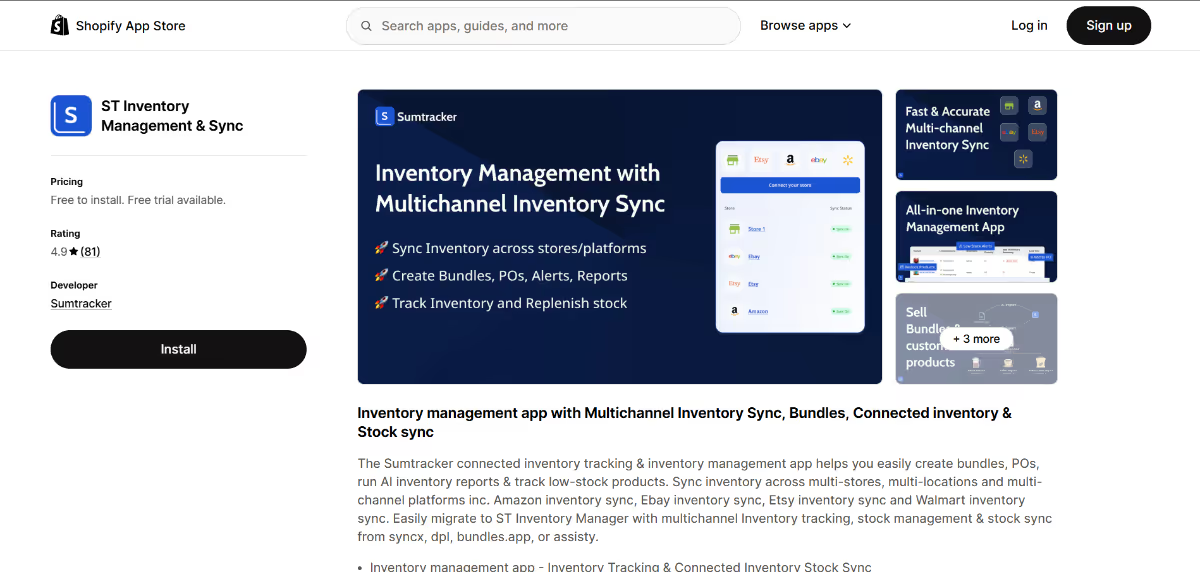
Key Features:
- Real-time inventory sync across all connected platforms
- Advanced bundle and kit support
- Multi-location inventory tracking
- Purchase order management and supplier tracking
- Low stock alerts and reporting
Best For: Shopify and Amazon sellers, multi-location brands, and merchants using bundles/kits.
Pros:
- Simple and intuitive UI
- Excellent support for DTC brands
- Reliable multichannel sync, even across Shopify and marketplaces
- Competitive pricing
Cons:
- Doesn’t currently provide inventory forecasting
- Mobile app not available (yet)
Pricing:Plans start at $49 / month for up to 200 orders.
2. Bundles.app
Bundles.app is a Shopify app designed specifically for creating and managing product bundles. It’s ideal for merchants who want full control over bundle logic without compromising inventory accuracy.
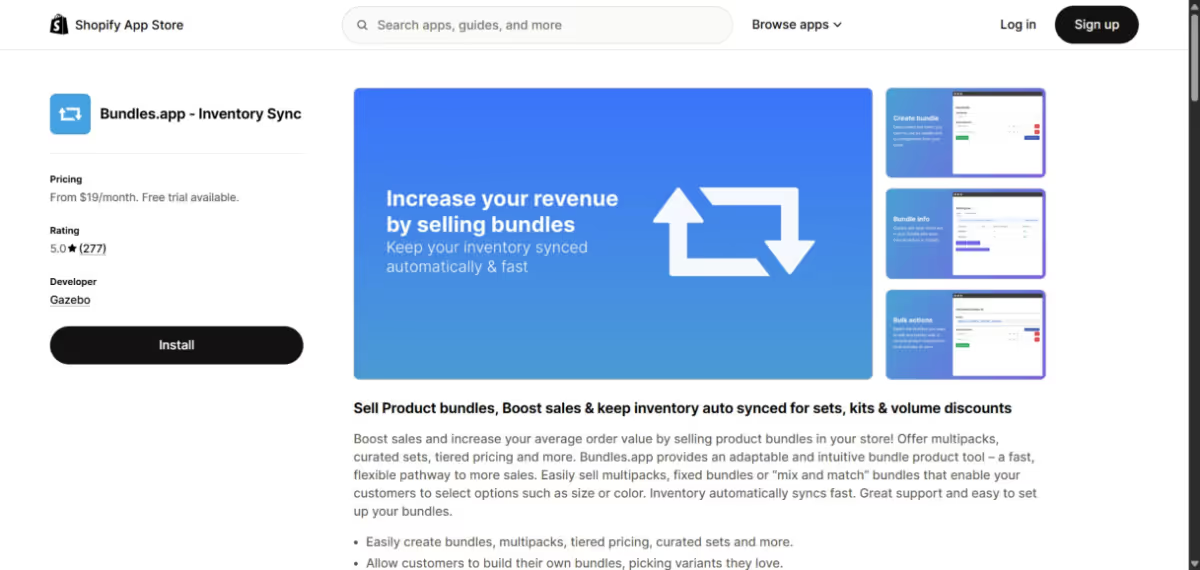
Key Features:
- Real-time inventory syncing for bundles and components
- Supports fixed, mix-and-match, and volume-based bundles
- Native Shopify integration (no external syncing required)
- Lightweight and easy to set up
- Works with Shopify POS and online store
Best For:
Shopify sellers who need flexible, reliable bundle syncing without using an external inventory platform.
Pros:
- Native to Shopify, no external systems needed
- Super-fast syncing, changes reflect instantly
- Great for custom bundle rules (e.g., discounts by quantity or product type)
- Affordable pricing
Cons:
- Limited to Shopify only, no multichannel support
- Doesn’t offer broader inventory or order management features
Pricing: Starts at $14/month, with higher tiers based on order volume.
3. Simple Bundles & Kits
Simple Bundles & Kits is a Shopify-exclusive app that makes it easy to sell multipacks, subscription boxes, and build-your-own bundles, all while keeping inventory in sync at the component level. It’s designed for sellers who want flexible bundling without needing a full inventory management system.
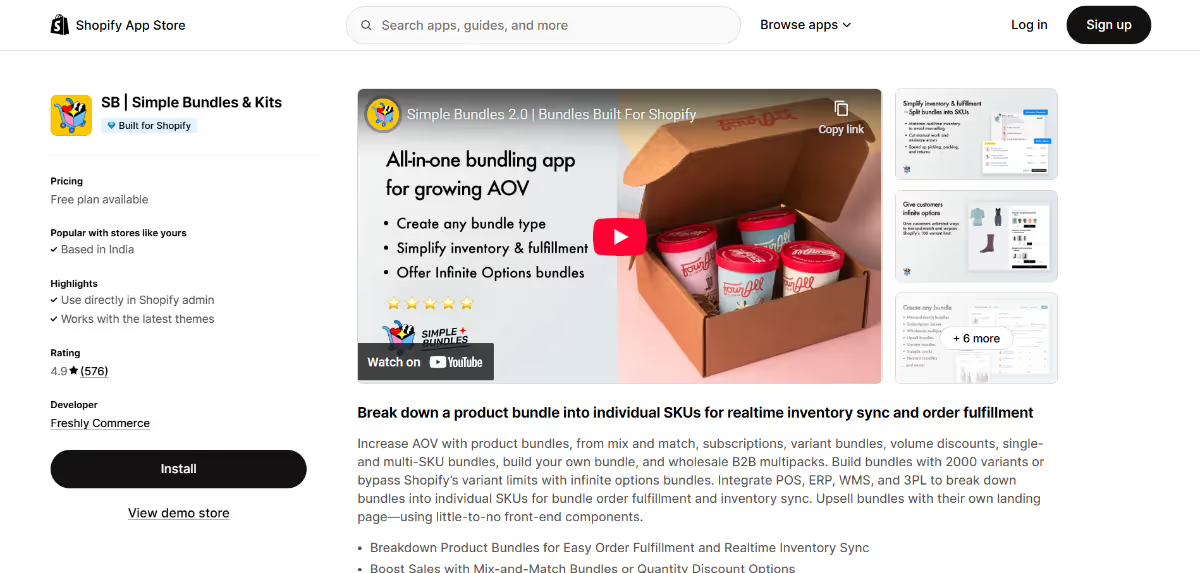
Key Features:
- Syncs inventory of individual SKUs within bundles
- Supports both fixed and customizable bundles (with optional upsells)
- Integrates with Shopify online store, POS, and checkout
- Allows drag-and-drop bundle creation
- Works well with 3PLs and fulfillment workflows
Best For:
Shopify merchants looking to offer curated or dynamic product bundles with accurate inventory tracking.
Pros:
- Easy to set up and manage
- Works natively within Shopify
- Handles complex and build-your-own bundles
- Compatible with fulfillment apps and 3PLs
Cons:
- Only works with Shopify, no marketplace integrations
- Not a full inventory system (no POs, multi-location tracking, etc.)
Pricing: Starts at $14/month, with additional plans based on order volume and bundle complexity.
4. Sellbrite
Sellbrite is a powerful multichannel listing and inventory management platform designed to help sellers list and sync products across marketplaces like Amazon, eBay, Walmart, and Etsy. It’s especially helpful for merchants who want a simple way to unify listings.
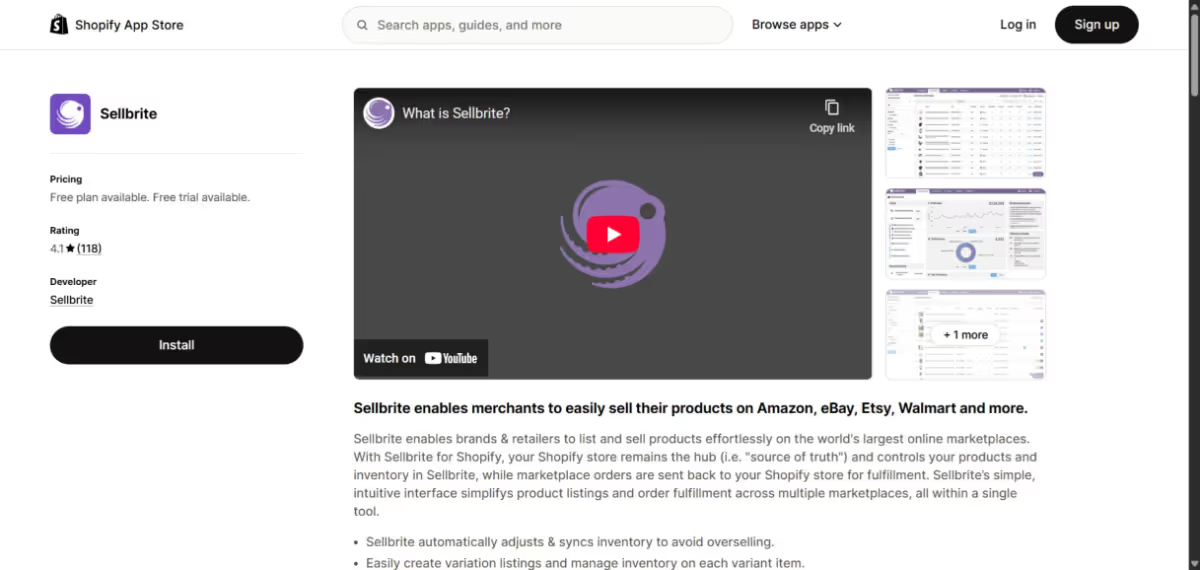
Key Features:
- Centralized listing creation and management across multiple marketplaces
- Real-time inventory sync across all connected sales channels
- Order routing and fulfillment tracking
- Works with Shopify, BigCommerce, Amazon, Walmart, eBay, and more
- Detailed reports and SKU-level insights
Best For:
Marketplace sellers looking to manage listings and stock across multiple channels without complex setup.
Pros:
- Excellent multichannel listing tool
- Easy to use, with clean interface
- Reliable inventory sync across major marketplaces
- Integrates directly with Fulfillment by Amazon (FBA)
Cons:
- Limited support for advanced inventory workflows (e.g., bundles, POs)
- Reporting is basic compared to full inventory platforms
Pricing: Starts at $29/month for up to 100 orders
5. Finale Inventory
Finale Inventory is a scalable cloud-based inventory management system designed for growing ecommerce, wholesale, and manufacturing businesses. It’s particularly strong at handling large SKU volumes, barcode-based workflows, and high-order throughput across multiple channels.
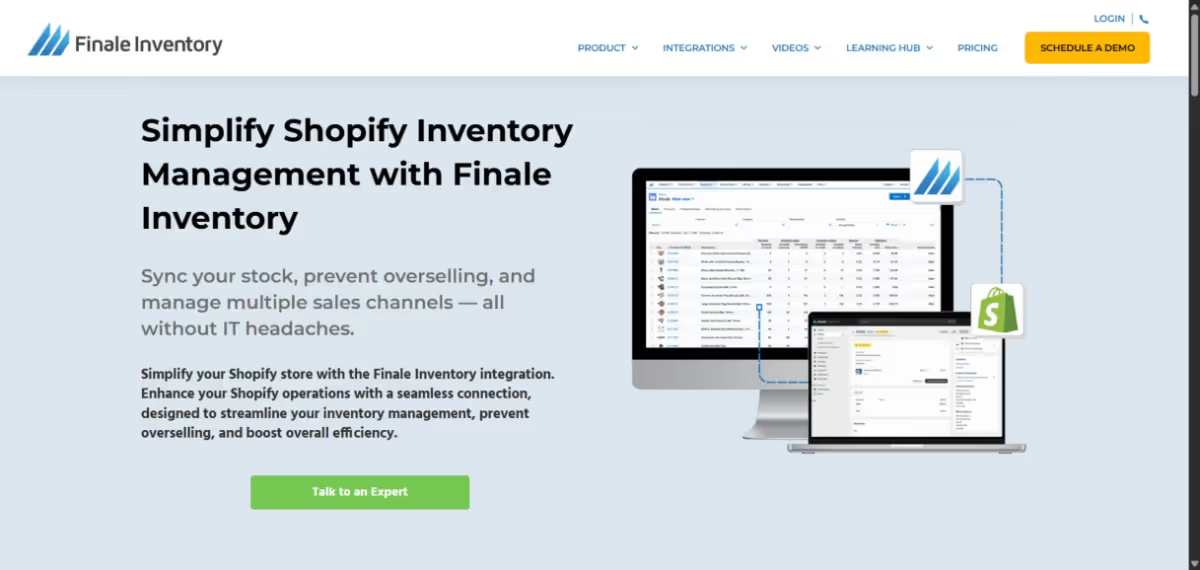
Key Features:
- Real-time inventory syncing across sales channels
- Barcode scanning and mobile stock control
- Multi-location inventory and reorder alerts
- Order management with batch/serial tracking
- Integrations with Shopify, Amazon, eBay, ShipStation, QuickBooks, and more
Best For:
High-volume sellers, warehouse-driven teams, and brands managing large catalogs with barcode-based picking and packing.
Pros:
- Handles very large SKU and order volumes efficiently
- Barcode system works well for warehouse teams
- Flexible setup with customizable workflows
- Strong customer support and onboarding assistance
Cons:
- UI feels outdated compared to newer platforms
- Initial setup can be time-consuming for non-technical users
Pricing: Starts at $99/month for the Self-Starter plan with tiers scaling up to $949/month for high-volume plans.
6. Zoho Inventory
Part of the larger Zoho suite, Zoho Inventory is ideal for small to mid-sized businesses that want an affordable yet feature-rich platform. It handles inventory, orders, shipping, and invoicing especially well if you're already using Zoho Books or Zoho CRM.
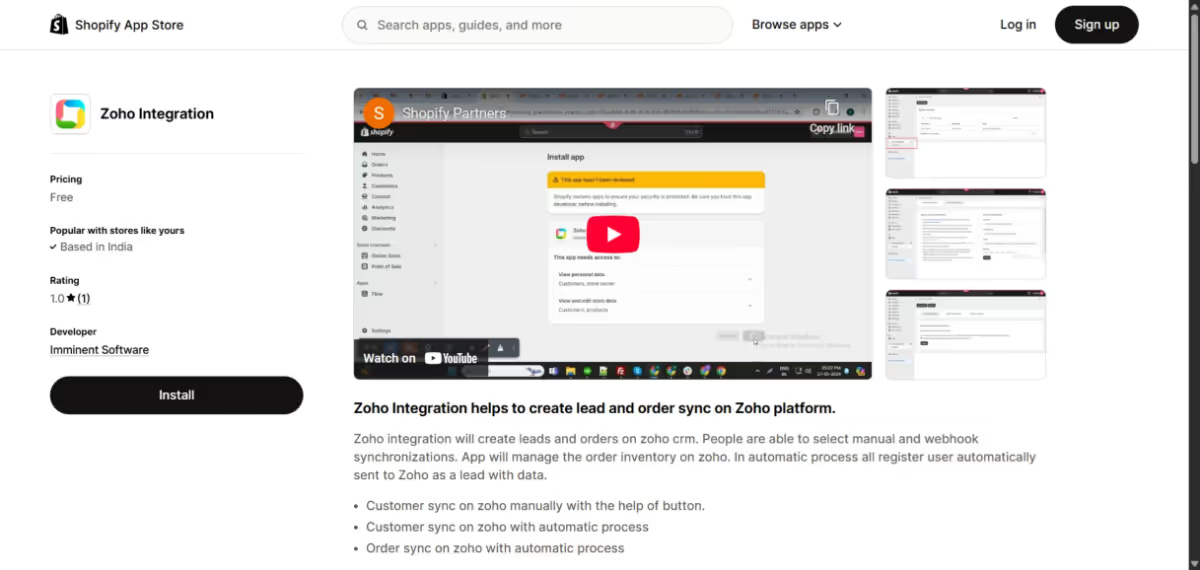
Key Features:
- Multi-channel sales management
- Barcode scanning and shipping integrations
- Serial number tracking
- Order fulfillment automation
- Integrates with Zoho CRM, Books, Shopify, Amazon, eBay
Best For: Small to mid-sized businesses already using or considering the Zoho platform.
Pros:
- Budget-friendly
- Highly customizable
- Great for order and shipping workflows
Cons:
- UI can feel outdated
- Works best if you’re all-in on Zoho ecosystem
Pricing- Paid plans range from $24 to $249/month
7. Cin7 Core
Cin7 is an enterprise-grade platform that combines inventory, warehouse, POS, B2B, and 3PL management in one place. If you’re running multiple channels, managing wholesale orders, or need tight supply chain control, Cin7 can do the heavy lifting.
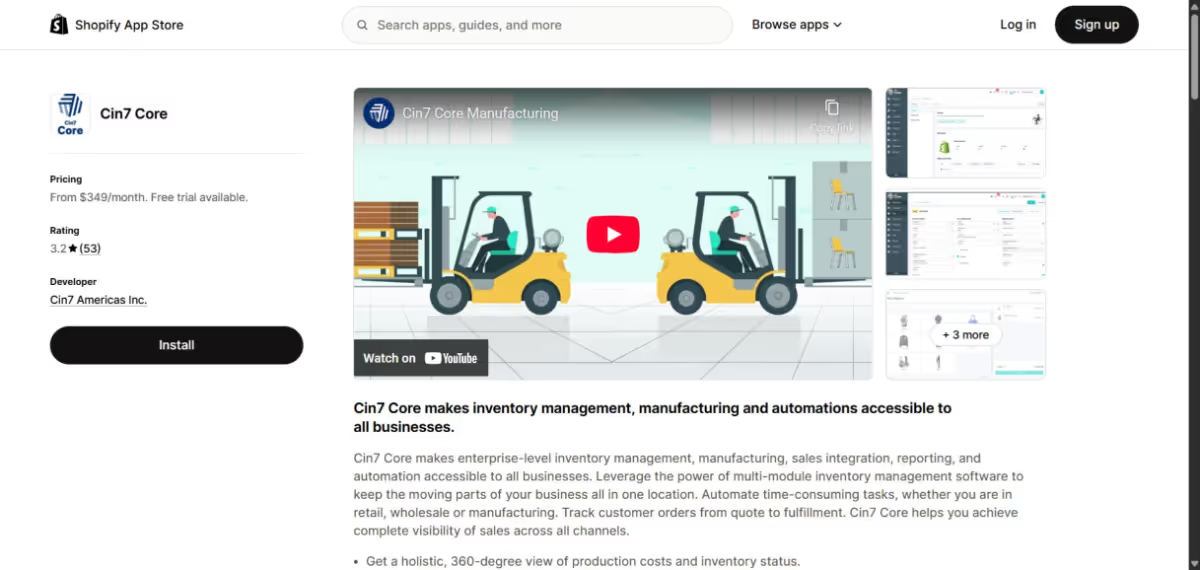
Key Features:
- Centralized product, inventory, and sales tracking
- B2B portals and POS support
- Advanced reporting and analytics
- Built-in EDI and 3PL connections
- Supports Amazon, Shopify, WooCommerce, and more
Best For: Medium to large businesses with complex workflows and wholesale operations.
Pros:
- Extremely versatile and scalable
- Great for B2B and multi-warehouse businesses
- Wide range of integrations
Cons:
- Higher cost
- Can be overkill for simple needs
Pricing: Begins at $349/month for the Standard plan; higher plans at $599 and $999
8. Katana Cloud Inventory
Katana is tailor-made for brands that manufacture their own products. It gives you visual production workflows, raw material tracking, and real-time inventory status all with a clean, modern interface that’s easy to use.
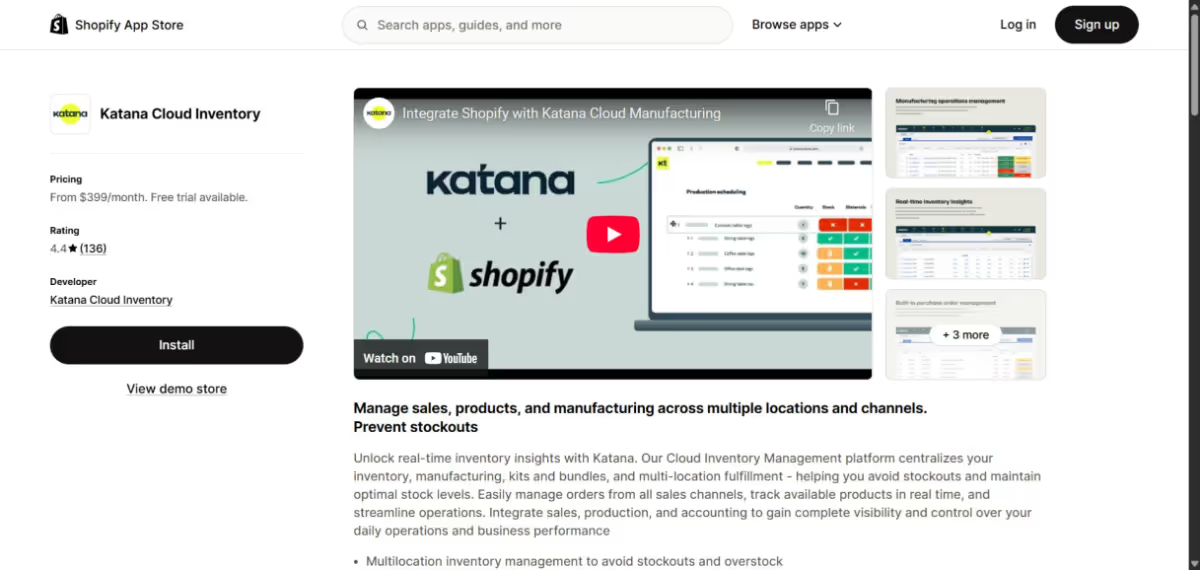
Key Features:
- Visual production planning
- Shop floor-level task tracking
- Real-time inventory and order status updates
- Native integrations with Shopify, Xero, QuickBooks
Best For: Small manufacturers, DTC brands making their own products.
Pros:
- Sleek, intuitive interface
- Great for managing production and raw materials
- Easy to use, even for non-tech teams
Cons:
- Limited multi-location support
- Not ideal for pure retailers
Pricing: Standard starts at $349, Professional at $799/month
9. Linnworks
Linnworks is a comprehensive operations platform for high-volume multichannel sellers. It helps automate inventory, orders, shipping, and forecasting with strong global support and deep integrations across marketplaces and carriers.
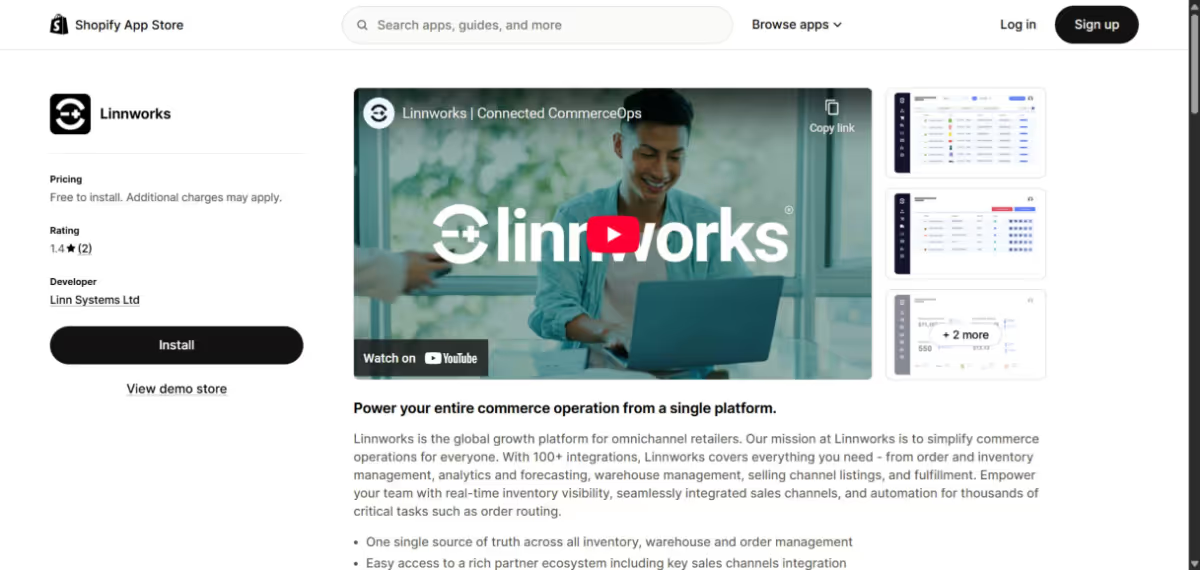
Key Features:
- Inventory sync across dozens of platforms
- Advanced automation rules
- Warehouse management features
- Forecasting and demand planning
- Global shipping support
Best For: Large-scale multichannel operations and international sellers.
Pros:
- Highly customizable and robust
- Ideal for multichannel automation
- Scales with your business
Cons:
- Can be complex to set up
- Higher learning curve and price point
Pricing: Custom prices available
10. SKULabs
SKULabs is a fast, modern inventory and fulfillment platform for ecommerce teams that need precise control over picking, packing, and syncing. It’s especially strong in barcode scanning and real-time operations at the warehouse level.

Key Features:
- Barcode scanning and picking/packing tools
- Inventory syncing across Shopify, Amazon, Walmart, etc.
- Real-time order management
- Mobile-optimized dashboard
Best For: Fast-growing ecommerce teams who need fulfillment and inventory tools in one place.
Pros:
- Great for warehouse teams
- Clean and fast interface
- Real-time scanning and packing
Cons:
- Lacks robust forecasting
- Some reporting limitations
Pricing: Available by quote, based on order volume and feature needs
Conclusion
Trunk is a great entry-level tool for basic inventory syncing and bundling but once your business starts scaling, its limitations become hard to ignore.
From unreliable bundle syncing to a lack of core inventory features, many merchants find themselves needing more flexibility, control, and power.
Whether you’re a fast-growing DTC brand, a manufacturer juggling raw materials, or a high-volume multichannel seller, the tools listed above offer stronger, more scalable alternatives.
Take advantage of free trials, explore demos, and choose a solution that fits not just where you are today, but where you’re headed tomorrow.
Conclusion
Ready to Simplify Your Inventory Management?
Join hundreds of e-commerce merchants who rely on Sumtracker to save time, eliminate errors, and grow their business.
.svg)



.png)
.avif)
.avif)